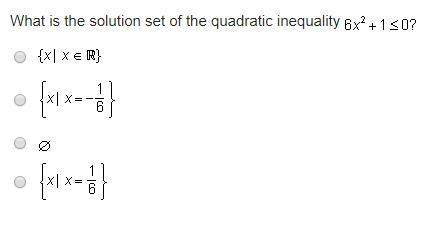
Mathematics, 03.03.2020 23:21 teethebeast
You have a metal rod that’s 51⁄64 in. long. The rod needs to be trimmed. You cut 1⁄64 in. from one end and 1⁄32 in. from the other end. Next, you cut the rod into 6 equal pieces. What will be the final length of each piece? (Be sure to reduce your answer to its lowest terms.)

Answers: 2


Another question on Mathematics

Mathematics, 21.06.2019 16:30
Why do interests rates on loans to be lower in a weak economy than in a strong one
Answers: 3

Mathematics, 21.06.2019 20:40
Which questions would most a reader identify the author's purpose for writing? check all that apply. what type of text is this? what type of reviews did the book receive? how many copies of the book have been sold? what is the central idea? how does this text make one feel?
Answers: 2

Mathematics, 21.06.2019 21:50
Scores on a university exam are normally distributed with a mean of 78 and a standard deviation of 8. the professor teaching the class declares that a score of 70 or higher is required for a grade of at least “c.” using the 68-95-99.7 rule, what percentage of students failed to earn a grade of at least “c”?
Answers: 1

Mathematics, 22.06.2019 00:20
Data for the height of a model rocket launch in the air over time are shown in the table. darryl predicted that the height of the rocket at 8 seconds would be about 93 meters. did darryl make a good prediction? yes, the data are best modeled by a quadratic function. the value of the function at 8 seconds is about 93 meters. yes, the data are best modeled by a linear function. the first differences are constant, so about 93 meters at 8 seconds is reasonable. no, the data are exponential. a better prediction is 150 meters. no, the data are best modeled by a cubic function. a better prediction is 100 meters.
Answers: 2
You know the right answer?
You have a metal rod that’s 51⁄64 in. long. The rod needs to be trimmed. You cut 1⁄64 in. from one e...
Questions

Mathematics, 09.01.2020 20:31

Mathematics, 09.01.2020 20:31

English, 09.01.2020 20:31



Business, 09.01.2020 20:31


Chemistry, 09.01.2020 20:31


Mathematics, 09.01.2020 20:31




Mathematics, 09.01.2020 20:31



Mathematics, 09.01.2020 20:31

Advanced Placement (AP), 09.01.2020 20:31


History, 09.01.2020 20:31




